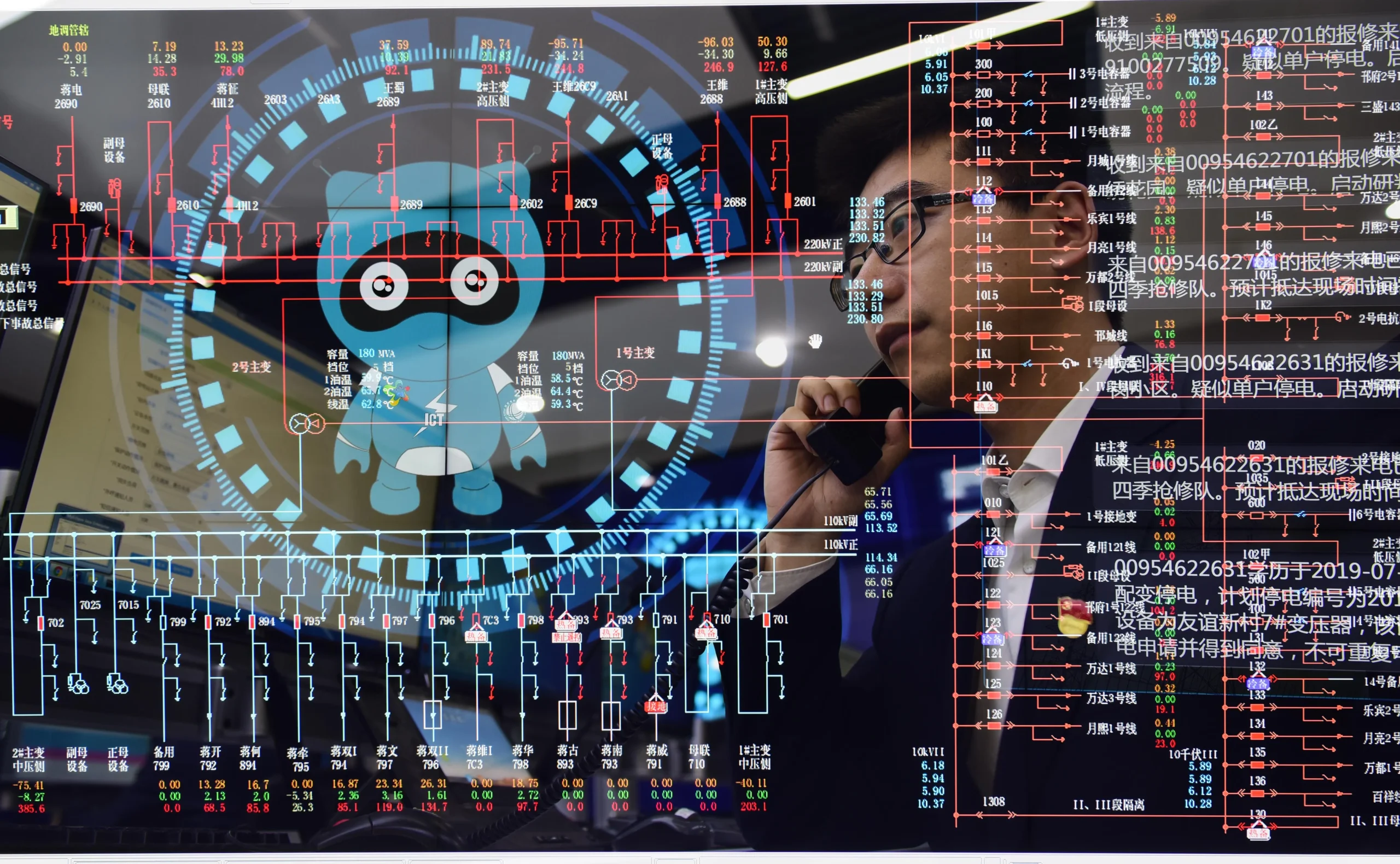Artificial Intelligence (AI) is no longer a futuristic concept; it has become a powerful force for change across various sectors. As the world faces global challenges ranging from climate change and healthcare crises to economic inequality and data security issues, AI is emerging as a crucial tool in addressing these complex problems. By leveraging AI technologies, we can find innovative solutions to some of the most pressing issues of our time.
In this article, we explore how AI is playing a vital role in solving global challenges and how its continued development can bring positive transformation to the world.
1. AI and Climate Change
One of the most significant global challenges is climate change. The impact of global warming is felt worldwide, with extreme weather events, rising sea levels, and ecosystem disruption becoming more frequent. AI is helping combat climate change in several ways:
- Predictive Analytics: AI models can forecast weather patterns and identify climate trends, providing valuable insights that can inform climate policies and disaster response strategies.
- Energy Efficiency: AI-powered systems optimize energy consumption in industries, buildings, and transportation. Smart grids and AI algorithms help reduce energy waste and improve the management of renewable energy sources like solar and wind.
- Carbon Capture: AI is being used to develop innovative carbon capture technologies that can help reduce greenhouse gas emissions.
By utilizing AI to analyze vast amounts of environmental data, we can make smarter decisions to mitigate the effects of climate change and work toward a more sustainable future.
2. AI in Healthcare: Revolutionizing Disease Prevention and Treatment
The global healthcare system faces numerous challenges, including access to healthcare, disease prevention, and the rising costs of medical treatment. AI is revolutionizing healthcare by offering solutions that can improve patient outcomes and enhance efficiency:
- Disease Diagnosis: AI-powered tools can analyze medical images, genetic data, and patient records to diagnose diseases with high accuracy. AI has already shown great success in detecting cancers, heart conditions, and neurological disorders early, which can significantly improve patient survival rates.
- Drug Development: AI accelerates the drug discovery process by predicting how different compounds will interact with diseases. This reduces the time and cost involved in bringing new drugs to market.
- Personalized Medicine: AI enables more personalized treatment plans by analyzing individual patient data, including genetic information, lifestyle, and medical history.
With AI in healthcare, we can improve diagnostics, reduce healthcare costs, and make treatments more personalized and accessible to everyone.
3. AI and Economic Inequality

Economic inequality remains a significant global challenge. While AI presents numerous opportunities for economic growth, there is concern that it could exacerbate inequality by displacing jobs and benefiting only certain groups. However, AI also has the potential to reduce inequality in several ways:
- Financial Inclusion: AI-powered financial technologies can provide underserved populations with access to banking services, credit, and investment opportunities, helping to reduce financial inequality.
- Education and Workforce Training: AI can help bridge educational gaps by providing personalized learning experiences and access to education for people in remote or underprivileged areas. Additionally, AI can support reskilling initiatives to help workers transition into new industries and roles.
- Job Creation: While AI may automate certain tasks, it also creates new opportunities for jobs in fields like data science, AI development, and robotics, helping to foster new industries.
AI has the potential to help create a more equitable world by providing access to essential resources like financial services and education to underserved communities.
4. AI and Global Health Crises: Tackling Pandemics and Epidemics
The world has experienced several global health crises, with the COVID-19 pandemic being a recent and stark example of how vulnerable the global population can be to health emergencies. AI has been instrumental in addressing the challenges posed by such crises:
- Pandemic Prediction and Tracking: AI models were used to track the spread of COVID-19, predict future outbreaks, and assess the effectiveness of interventions. By analyzing vast amounts of data, AI can identify patterns and trends that help prevent the next pandemic.
- Vaccine Development: AI accelerated the research and development of vaccines by identifying potential candidates, simulating their interactions, and analyzing clinical data.
- Telemedicine: AI-powered platforms have facilitated the rise of telemedicine, allowing healthcare providers to diagnose and treat patients remotely, ensuring that healthcare services continue even during lockdowns or quarantine periods.
By helping to predict, track, and treat health crises more effectively, AI can improve global health outcomes and prevent future pandemics.
5. AI in Global Security and Peacekeeping
Security is another area where AI is playing an essential role in solving global challenges. Whether it’s preventing cyberattacks, enhancing national security, or supporting peacekeeping efforts, AI technologies are proving invaluable:
- Cybersecurity: AI systems can detect and respond to cyber threats in real time, preventing large-scale data breaches and cyberattacks. AI-powered algorithms are used to monitor network traffic, identify vulnerabilities, and defend against malicious activities.
- Military Applications: AI is being used to enhance military defense systems, including autonomous drones and surveillance systems. While this raises ethical concerns, AI also has the potential to prevent conflicts by providing better intelligence and predictive analysis for peacekeeping missions.
- Disaster Response: AI can help with the rapid deployment of resources during natural disasters, predicting areas at risk and coordinating the relief efforts more efficiently.
AI-driven solutions are helping ensure global security, prevent cyber threats, and provide peacekeeping assistance during times of conflict.
6. AI and Ethical Challenges
While AI holds great promise, its widespread use also presents ethical challenges that must be addressed to ensure it benefits society as a whole. Some of the most pressing ethical concerns include:
- Bias in AI: AI systems can inherit biases from the data they are trained on, leading to unfair or discriminatory outcomes in areas like hiring, law enforcement, and lending.
- Data Privacy: The collection and use of vast amounts of personal data for AI applications raise concerns about privacy and surveillance.
- Job Displacement: AI and automation have the potential to displace workers in certain industries, raising concerns about job loss and economic inequality.
To ensure that AI is used for good, it’s essential to develop ethical guidelines, enforce regulations, and promote transparency in AI systems.
Also Read: Ai Powered Automation: The Future Of Work And Productivity
Conclusion: Harnessing AI for a Better Future
Artificial Intelligence holds the key to solving many of the world’s most significant global challenges. From fighting climate change and improving healthcare to reducing inequality and enhancing global security, AI is a powerful tool for driving positive change. However, its success in addressing these challenges depends on responsible development, ethical considerations, and international collaboration.
As AI technologies continue to evolve, the world has an incredible opportunity to use them to create a more sustainable, equitable, and secure future for all. By embracing AI’s potential and addressing its challenges, we can make meaningful progress in solving the most pressing global issues.
SEO Optimization Tips
- Keyword Usage: Incorporate keywords like “Artificial Intelligence,” “AI solving global challenges,” “AI in healthcare,” “AI in climate change,” “global challenges,” “AI technology,” and “AI solutions” throughout the article, especially in headings and early sections.
- Meta Description: “Explore how Artificial Intelligence (AI) is solving global challenges like climate change, healthcare crises, and economic inequality, and how it is shaping the future of a sustainable world.”
- Internal & External Links: Link to relevant resources, studies, or other articles on AI and global challenges. Include citations to authoritative sources like scientific journals or expert reports.
- Call to Action: Encourage readers to share their thoughts in the comments, share the article on social media, or subscribe for more content on AI’s impact on global issues.

